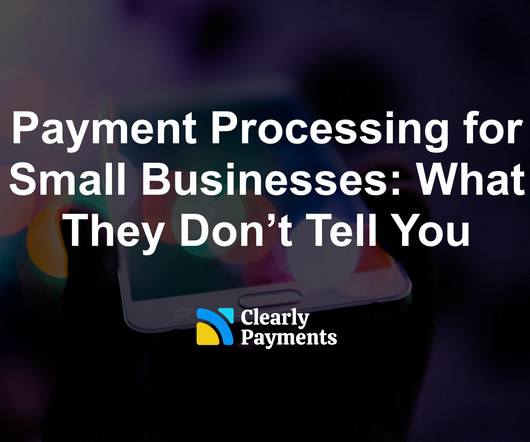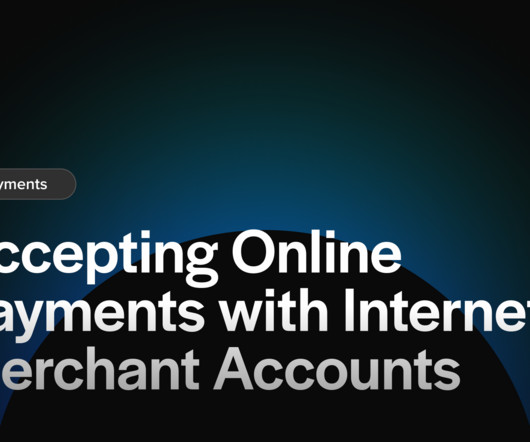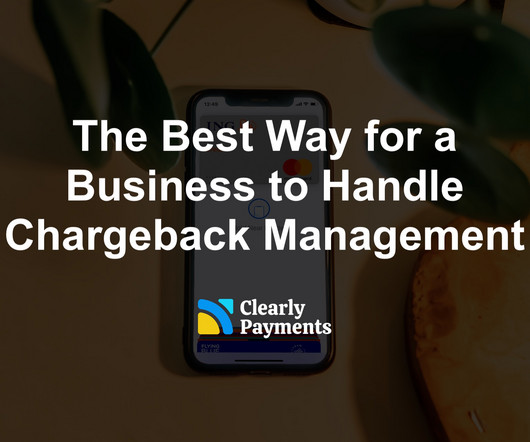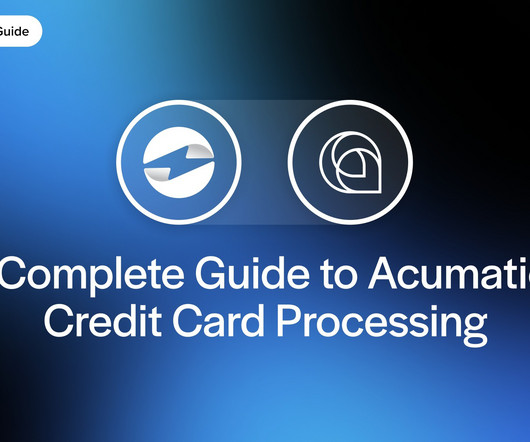Payment Processing for Small Businesses: What They Don’t Tell You
Clearly Payments
FEBRUARY 10, 2025
The Payment Processor The company that facilitates transactions. Processor Markup Payment processors add their own fees, which can be 0.2% Monthly Fees Some processors charge a flat monthly rate, often between $10 and $50. The Customer The person making the payment. per transaction. to 1% above interchange fees.
















Let's personalize your content